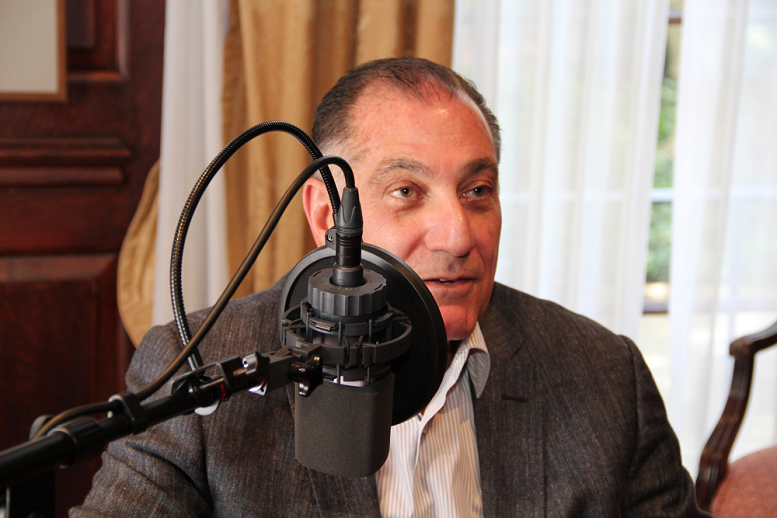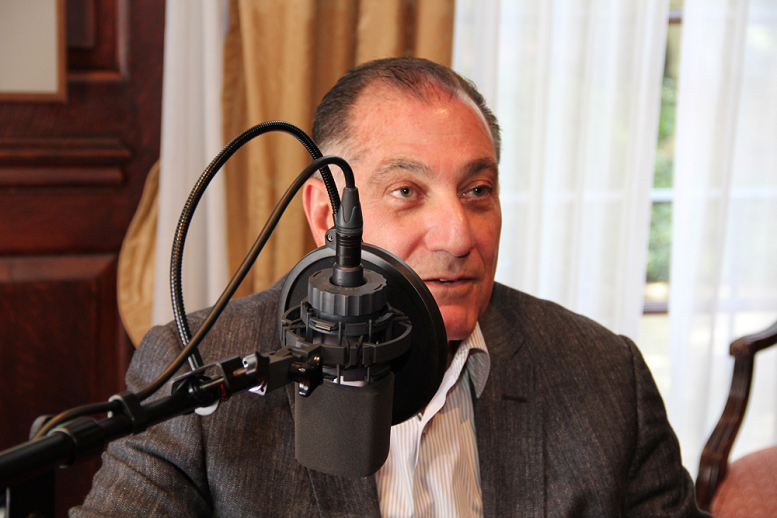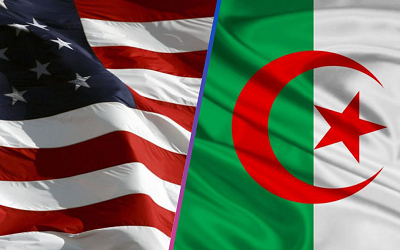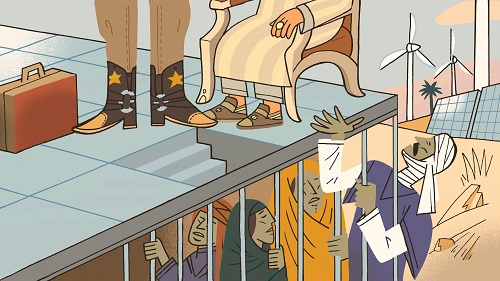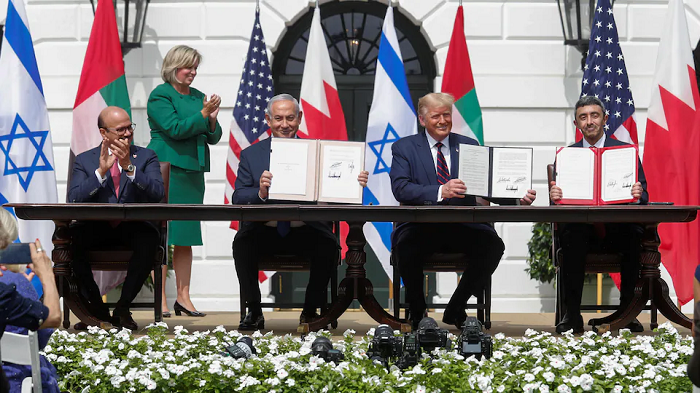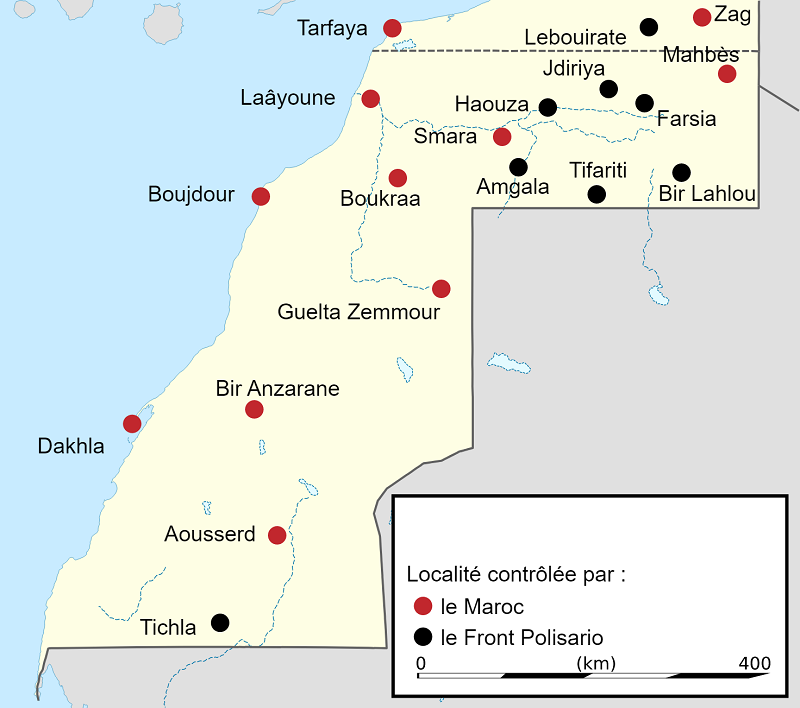Tags : Maroc, USA, Lobbying, Sahara Occidental, Front Polisario, Terrorisme, Sahel,
Introduction
Dans l’atmosphère hautement politisée à Washington en cette année d’élections présidentielles américaines, la politique étrangère américaine reçoit peu d’attention, sauf en cas de crise. Dans le passé, les présidents américains pouvaient compter sur « battre le drapeau », faisant appel au patriotisme américain comme moyen de renforcer le soutien aux politiques. Aujourd’hui, chaque mot ou action est placé sous une loupe pour déterminer ou déduire des significations cachées qui révèlent la faiblesse des politiques proposées. Ainsi, très peu de mouvements à Washington concernant la politique qui n’est pas liée à des problèmes et des défis qui ne peuvent être retardés.
Ce milieu difficile rend encore plus décourageants les efforts de l’équipe de Washington pour amener l’administration Obama à approuver le financement américain de projets au Sahara occidental. Pourtant, les résultats à ce jour sont largement positifs. Malgré la couverture médiatique négative de l’affaire Amina Filali et les visites régulières d’Aminatou Haidar à New York et à Washington pour dénoncer le bilan du Maroc en matière de droits humains, le Maroc continue de recevoir un accueil positif au Congrès. La volonté de l’équipe de Washington d’avoir plus de 300 réunions avec les bureaux du Congrès avant les vacances d’été fait de grands progrès. Le message clé, à savoir que l’aide étrangère américaine aux camps doit être accordée à condition qu’elle améliore directement la vie des réfugiés, est bien reçu.
Il y a un dilemme dans les activités de l’équipe de Washington dans la mesure où le Maroc n’est pas en crise, par conséquent, certains décideurs politiques préféreraient laisser les problèmes du Royaume hors de l’ordre du jour tandis que l’administration s’occupe de la Syrie, de l’Iran, de l’Irak et des crises au-delà de la région MENA. Mettre fin au conflit du Sahara occidental, bien qu’il s’agisse d’un résultat utile pour les intérêts américains dans la région, n’est pas considéré comme une priorité par certains membres du gouvernement. Il était donc utile que les remarques qui ont suivi la rencontre entre le ministre des Affaires étrangères et la secrétaire d’État Clinton aient réaffirmé la centralité du conflit du Sahara occidental et l’engagement envers le dialogue stratégique bilatéral. Cette visite, et la visite de la Secrétaire Clinton au Maroc, et les éloges généralement élevés que le Maroc reçoit pour son rôle au Conseil de sécurité de l’ONU, continuent de démontrer que le Maroc est un leader dans la région,
Le rapport sur les communications ci-dessous indique que la couverture positive du Maroc l’emporte de loin sur la couverture négative associée à Amina Filali et Aminatou Haidar. Les préoccupations sécuritaires liées à la région, le leadership du Maroc au Conseil de sécurité de l’ONU, les préoccupations persistantes quant à la direction des soulèvements arabes et les éditoriaux qui montrent comment le Maroc progresse dans ses réformes et son développement économique, contribuent tous à l’image positive du Maroc dans les média.
Ce rapport n’est ni exhaustif ni entièrement détaillé car nous nous concentrons sur les éléments qui ont le plus d’impact sur notre stratégie. Puisqu’il est difficile de distinguer une partie du travail du Centre Marocain Américain de celui de l’Ambassade, ce rapport inclut certaines activités de l’Ambassade, du MAC et de ses consultants en tant que « Washington Team ».
OU:
Ce rapport est préparé par le Centre Marocain Américain, incluant le MACP, le MACC et le MATIC. Il n’est ni exhaustif ni entièrement détaillé car nous nous concentrons sur les éléments qui ont le plus d’impact sur notre stratégie. Bien que nous essayions de ne mettre en évidence que le travail dans lequel MAC a été impliqué, dans certains cas, nous abordons le travail d’autres personnes, telles que l’ambassade ou d’autres entités pro-marocaines. Dans de tels cas connexes, nous essayons de ne rendre compte que des activités où MAC a également joué un rôle, ou lorsque l’activité mérite d’être soulignée à l’équipe de Rabat car elle se rapporte à l’un des principaux objectifs de l’équipe. Dans tous les cas, nous essayons autant que possible de garder ce reporting au travail principal de MAC.
Campagnes
MoroccoOnTheMove.com (MOTM)
Le site Web MOTM de l’équipe de Washington et le programme de médias sociaux (@MorocOnTheMove) continuent d’élargir la portée de nos messages, en termes de quantité et d’audiences ciblées. Après cinq mois en ligne, près de 250 publications d’articles de presse et de contenu original par l’équipe de Washington sont apparues et le site Web a reçu plus de 24 000 visites. Au cours de la même période, @MorocOnTheMove a envoyé près de 900 tweets, compte près de 250 followers et a été retweeté régulièrement par des personnalités influentes sur Twitter. Bien que nous devions encore améliorer ces chiffres dans les mois à venir, c’est un bon début pour nos efforts sur les médias sociaux.
Dans le cadre d’efforts croissants pour dialoguer plus régulièrement avec nos publics cibles, en particulier par e-mail et sur les réseaux sociaux, l’équipe de Washington a distribué une lettre électronique, « Réforme, stabilité et Sahara occidental » à notre base de données de contacts d’environ 3 000 décideurs politiques, médias , des universitaires, des dirigeants de groupes de réflexion et d’ONG, des responsables de l’administration et du personnel du Congrès. Cette lettre électronique a mis en évidence et redistribué les éléments mentionnés dans le rapport sur les communications, notamment le rapport ICTS, l’article du magazine Atlantic, l’article publié par le Carnegie Endowment, la colonne Roll Call, les remarques du Congressional Record, The Hill op-ed, le Washington Post Chronique « Right Turn », la chronique POMED, et presse positive sur le lancement du RAMED, le programme de santé à grande échelle du Maroc visant à fournir des soins aux citoyens défavorisés.
De plus, en mars, l’équipe de Washington a commencé à distribuer un e-mail hebdomadaire « Morocco Highlight e-mail » à notre base de données de contacts, dans lequel un ou deux événements, publications et/ou articles de presse positifs sont présentés. Le but de ce point culminant hebdomadaire est d’attirer l’attention sur une importante opportunité de messagerie pour les contacts sur le Maroc. Le premier « e-mail sur le Maroc » a redistribué l’éditorial du Global Post du 27 mars.
Le Maroc en tant que leader
Au cours du mois de mars, l’équipe de Washington a poursuivi ses efforts pour promouvoir le Maroc en tant que modèle de progrès et de réforme en informant et en engageant régulièrement des décideurs politiques influents, des dirigeants de groupes de réflexion et des journalistes ciblés.
Activités:
Le 8 mars, le magazine The Atlantic , une publication très respectée sur la culture, l’actualité et la politique depuis plus de 150 ans, a publié un article, « La crise d’identité arabe à venir », de Massoud Hayoun qui se concentre sur les questions d’identité arabe. qui ont refait surface lors du printemps arabe. L’équipe de Washington a organisé une interview pour son auteur avec l’ambassadeur Edward Gabriel, qui est cité parmi d’autres dirigeants influents de la diaspora arabe. Pour une diffusion ultérieure, une colonne de blog mettant en avant l’article a été publiée sur « Qui est qui dans le monde arabe ? Examen de l’identité arabe », sur le blog de politique étrangère de la Foreign Policy Association .
Le 13 mars, Elliott Abrams, chercheur principal pour les études sur le Moyen-Orient au Council on Foreign Relations, a organisé une table ronde dans les bureaux du Council à Washington avec l’ambassadeur Bouhlal intitulée « Le Maroc et le printemps arabe ». Lors de l’événement, qui a été organisé grâce à la sensibilisation de l’équipe de Washington à Abrams et au CFR, l’ambassadeur Bouhlal a détaillé le processus de réforme du Maroc et répondu aux questions sur la mise en œuvre de la nouvelle Constitution.
Début mars, le POMED Wire , un blog du Project on Middle East Democracy, a publié un rapport citant des allégations douteuses de torture contre le Maroc faites sur le site Internet du Sahara Press Service (SPS). L’équipe de Washington a contacté le directeur exécutif de POMED, l’a alerté sur la nature douteuse de nombreuses publications de SPS, ce qui l’a incité à informer ses blogueurs de garder à l’esprit la nature non professionnelle de SPS avant de republier ou de se procurer son travail. À la suite de la conversation, POMED a accepté de publier un article sur le fil POMED rédigé par l’ambassadeur Edward Gabriel, « Gabriel : changement, réforme et progrès au Maroc », qui décrivait l’année de la réforme au Maroc et comment son expérience du « printemps arabe » a été réussi et exceptionnel.
Le 23 mars, le Foreign Policy Blog de la Foreign Policy Association a publié une chronique de l’avocate internationale maroco-américaine, Leila Hanafi, « Réformes constitutionnelles au Maroc : perspectives pour les droits des jeunes ». L’article examine le succès du processus de réforme en cours au Maroc et les mesures qui seront nécessaires pour assurer que le succès soit durable et de grande envergure. Sachant que le contenu des articles de Mme Hanafi peut être quelque peu douteux, lorsqu’elle a demandé à l’équipe de Washington des commentaires, nous avons examiné le projet à sa demande afin d’atténuer les conséquences négatives.
Résultats:
En mars, les efforts de l’équipe de Washington pour mettre en évidence le rôle du Maroc en tant que leader des réformes démocratiques et de la paix dans la région ont généré plus de 320 placements médiatiques positifs et 20 millions d’impressions médiatiques favorables.
Le Polisario et le terrorisme au Sahara/Sahel
En mars, l’équipe de Washington a poursuivi ses efforts pour attirer l’attention des États-Unis sur la menace croissante d’AQMI et d’autres groupes terroristes au Sahara/Sahel afin d’orienter le débat et de renforcer les perceptions du rôle négatif du Polisario dans la région. Ces efforts comprenaient la sensibilisation des journalistes, l’organisation de séances d’information par les membres de l’équipe de Washington et des porte-parole tiers, et la création de fiches d’information et d’autres documents justificatifs à distribuer aux publics cibles.
Activités:
Suite à la publication le 2 mars par The Hill d’un éditorial de l’ambassadeur Edward Gabriel, « Arrêtez de subventionner les terrains de recrutement pour les terroristes et les trafiquants », plusieurs autres médias ont republié ou cité l’article, dont le réseau World247.net News et le UK Foreign Bureau/gouvernement britannique en ligne . En outre, le journal en ligne italien Lettera 43 a publié un article sur le terrorisme au Sahel qui citait des rapports et des cartes de l’ICTS.
Pour maintenir l’attention des médias américains sur le maintien en détention des travailleurs humanitaires européens enlevés par des membres d’un groupe lié à AQMI avec l’aide présumée de membres du Front Polisario, l’équipe de Washington a publié un article de blog sur le site Web du MOTM le 20 mars, « Day 150 – toujours en otage : Rosella Urru, deux autres capturés par la secte AQMI dans le camp Polisario. Cette publication fera partie d’une série régulière de mises à jour sur l’enlèvement à mesure que la situation évolue.
Le 27 mars, le Global Post a publié un éditorial de Jordan Paul, « Pourquoi perpétuons-nous une source d’instabilité en Afrique du Nord ? L’éditorial a plaidé en faveur d’un reciblage de l’aide non humanitaire destinée au Polisario pour qu’il cesse de perpétuer la détérioration des conditions sécuritaires et humanitaires des camps de réfugiés et a exhorté les dirigeants américains à résoudre le conflit du Sahara occidental.
Fin mars, l’équipe de Washington a compilé un article, « Spotlight : The case for redirection US support for the Polisario-run camps in Algeria, who are going to a recruter field for AQMI, arms and drug trafiquants ». Le document fournit des informations générales et une chronologie des incidents documentés et des rapports liant les membres du Front Polisario à AQMI, au trafic et à d’autres activités illicites dans la région. Il sera largement distribué en avril aux principaux contacts du Congrès, des médias et des groupes de réflexion.
Résultats:
En mars, les efforts de l’équipe de Washington pour mettre en évidence l’implication du Polisario dans la montée du terrorisme dans la région ont généré plus de 200 placements médiatiques favorables et 21 millions d’impressions médiatiques.
Résoudre le Sahara Occidental : Autonomie sous souveraineté marocaine
Avant et après le neuvième cycle de pourparlers informels sur le conflit du Sahara occidental, l’équipe de Washington a mené des activités de sensibilisation auprès des journalistes, des décideurs politiques et des représentants du gouvernement pour souligner le besoin urgent de résoudre le conflit pour des raisons de sécurité ainsi que pour des raisons humanitaires et pour promouvoir le compromis du Maroc. proposition d’autonomie.
Activités:
Afin d’attirer l’attention des médias américains sur les pourparlers informels et les efforts du Maroc pour offrir un véritable compromis dans les négociations, l’équipe de Washington a publié un communiqué de presse le 12 mars : « Les États-Unis et la France expriment leur ferme soutien au plan d’autonomie du Maroc pour résoudre le conflit du Sahara occidental, supprimer les obstacles à la paix dans la région. Le communiqué, qui soulignait les récentes déclarations publiques de soutien au plan d’autonomie de la secrétaire d’État américaine Clinton et du ministre français des Affaires étrangères Juppé, a été distribué à PRNewswire et ciblait les journalistes. Il a été publié par plus de 150 médias américains et internationaux, dont Reuters , Market Watch du Wall Street Journal , Forbes , Boston Globe , Dallas Morning News ,Cleveland Plain Dealer, Sacramento Bee, Yahoo News, AOL News, AfricaBusiness, and Afrik-News. MAP published an article, “Les 9è pourparlers sur le Sahara se tiennent avec en toile de fond un soutien consolidé de Washington au Plan d’autonomie,” that referenced the release and the ICTS report, which was republished by L’Opinion, Le Matin, and several other Moroccan news publications.
Suite à des briefings et des mises à jour réguliers par l’équipe, deux membres du Congrès ont également fait des déclarations publiques fortes de soutien au plan d’autonomie du Maroc en tant que solution de compromis pacifique au conflit du Sahara occidental. Dans un article d’opinion publié le 12 mars dans Roll Call, « Les changements offrent un signe positif pour le Sahara Occidental », le représentant Steve Cohen du Tennessee a expliqué pourquoi la proposition d’autonomie était la meilleure option pour la paix. Dans des remarques pour le Congressional Record, le représentant Chris Murphy du Connecticut a déclaré que le peuple du Sahara occidental « mérite que ce différend de longue date soit résolu » et a déclaré que la proposition de compromis du Maroc est « une offre raisonnable et peut servir de base aux négociations. » Murphy a reconnu, « il est dans l’intérêt des États-Unis et des parties concernées de parvenir à une solution pacifique et négociée à la question du Sahara Occidental[.] » MAPa publié des articles sur les déclarations des deux membres, « Le membre du Congrès américain souligne le soutien bipartisan écrasant au plan d’autonomie du Maroc au sein des deux chambres du Congrès américain » et « La proposition marocaine d’autonomie, une solution démocratique qui peut servir de base aux négociations, US Cong ».
Le 13 mars, le Carnegie Endowment for International Peace a publié un article du professeur Anouar Boukhars, « Simmering discontent in the Western Sahara », dans lequel Boukhars a examiné un certain nombre de facteurs internes et externes qui affectent la résolution du conflit du Sahara occidental. Le document – qui citait plusieurs sources d’information que l’équipe de Washington a aidé à générer – a été largement distribué aux contacts clés et aux journalistes ciblés et intégré à notre dossier d’information régulier sur le Sahara occidental.
Afin de souligner l’urgente nécessité de répondre à la crise humanitaire dans les camps contrôlés par le Polisario dans le sud de l’Algérie par la mise en œuvre de solutions durables pour les réfugiés, Robert Holley est l’auteur d’un blog posté sur le site Web du MOTM, « Vous n’avez pas à vivre comme un réfugié », qui est un jeu de mots de la chanson de Tom Petty portant le même titre.
Résultats:
En mars, les efforts de l’équipe de Washington pour souligner auprès du public américain le large soutien au plan d’autonomie du Maroc et la nécessité d’un leadership américain pour aider à résoudre le problème du Sahara occidental ont généré plus de 650 placements médiatiques favorables et 57 millions d’impressions médiatiques.
A venir en avril
Le 3 avril, l’équipe de Washington organisera une table ronde, « La crise du Sahara occidental : pourquoi le leadership américain est nécessaire maintenant », où un panel d’experts offrira un aperçu de la crise au Sahara occidental, la menace croissante du terrorisme dans la région, la détérioration de la situation humanitaire et comment les dirigeants américains peuvent aider à mettre fin pacifiquement à ce conflit. La table ronde mettra en vedette Jean AbiNader, conseiller principal, Moroccan American Center (modérateur), l’ambassadeur Michael Ussery, ancien ambassadeur des États-Unis au Maroc, le Dr J. Peter Pham, directeur, Michael S. Ansari Africa Center, The Atlantic Council, et Robert Holley, Conseiller politique principal, Centre marocain américain de politique. Pour encourager la participation et la couverture de la table ronde, l’équipe de Washington a largement distribué un avis de presse aux journalistes ciblés, ainsi qu’une invitation à tous les principaux décideurs politiques et responsables du gouvernement américain qui se concentrent sur le Maroc. L’avis a été repris et publié par plus de 120 médias américains et internationaux, y comprisReuters , Market Watch du Wall Street Journal , CNBC , CNN Top News , Boston Globe , African Press Organization , Sacramento Bee , Yahoo News , AOL News et Afrik-News.
Activités du Congrès
L’équipe de Washington a organisé plus de 90 réunions avec les bureaux du Congrès au cours du seul mois de mars , qui se sont concentrées sur nos thèmes principaux : le Maroc en tant que leader, la menace croissante du terrorisme dans la région et les dangers des camps du Polisario, la nécessité de cibler l’aide sur les camps , et la nécessité de résoudre la question du Sahara occidental sur la base de l’autonomie sous souveraineté marocaine.
Ces réunions servent à maintenir notre soutien majoritaire au Congrès, à garantir que la vérité soit connue sur le Polisario, à renforcer le soutien pour cibler l’aide aux camps et à créer une plus grande prise de conscience de l’importance d’une relation bilatérale solide entre les États-Unis et le Maroc. Ces réunions constituent la base que nous construisons chaque année car nous ne prenons jamais pour acquis nos partisans actuels et cherchons toujours à obtenir le soutien de membres supplémentaires. L’équipe de Washington a suivi ces réunions avec une série d’e-mails contenant des mises à jour, des nouvelles récentes, des publications afin de renforcer nos messages fournis à chaque réunion. Ce dernier prépare également le terrain pour nos prochaines rencontres afin que les membres soient au courant des enjeux à discuter bien à l’avance.
L’ambassadeur a poursuivi ses réunions d’introduction avec les principaux membres du Congrès. En avril, il a été invité à déjeuner dans la salle à manger des membres du Congrès où il a rencontré le représentant Steve Cohen (qui a écrit l’éditorial plus tôt dans le mois), le représentant Ed Towns, le représentant Ed Markey, le représentant Sheila Jackson. -Lee, et le représentant David Dreier. L’ambassadeur a également rencontré le co-président du caucus du Maroc, le représentant Michael Grimm. Ces rencontres d’initiation se poursuivront tout au long de l’année.
L’équipe de Washington a également produit des déclarations importantes concernant le dernier cycle informel de négociations. Le représentant Chris Murphy (D-CT) a fait une déclaration en faveur du Maroc à la veille des pourparlers de Manhasset et le représentant Steve Cohen (D-TN) a publié un éditorial très favorable le lundi des pourparlers. Ces déclarations et éditoriaux de membres démocrates de gauche contribuent à renforcer le concept selon lequel la solution autonomie/souveraineté bénéficie d’un large soutien et est la solution inévitable. Plus ce message s’imposera, plus il sera facile d’obtenir le soutien du Congrès pour établir les faits sur le terrain (en s’appuyant sur le langage de l’année dernière) et conditionner l’aide aux camps.
L’équipe de Washington a également travaillé avec le bureau du représentant Mario Diaz-Balart pour poser des questions à l’administration lors des audiences de surveillance avec la secrétaire Clinton sur la manière dont ils prévoyaient de mettre en œuvre le libellé autorisant l’aide américaine au Maroc à être dépensée dans les provinces du sud. Cela aide à garder la question devant le Département d’État et leur fait prendre conscience que le Congrès a l’intention de voir l’action cette année. L’équipe de Washington travaille également avec le Comité des crédits pour développer un langage et un soutien sécurisé pour cibler l’aide aux camps de réfugiés loin du statu quo et vers des solutions durables, y compris un recensement et une réinstallation.
MATIC
MATIC a travaillé avec la Chambre de commerce américaine pour mettre en place sa première délégation commerciale au Maroc du 20 au 22 mars, qui comprenait de grandes entreprises telles que Raytheon, Honeywell, Lockheed Martin, General Dynamics et autres, ainsi que six entreprises axées sur les énergies renouvelables. . L’Ambassade du Maroc a organisé la participation d’un certain nombre de hauts responsables gouvernementaux pour assister à des événements et à des déjeuners et dîners organisés par AMDI et Maroc Export. MATIC a organisé un déjeuner pour la délégation le 21 mars et a travaillé avec ADEREE, MASEN et ONE sur un panel sur les énergies renouvelables. L’ambassadeur Kaplan et des membres de l’ambassade des États-Unis ont assisté au déjeuner.
La nouvelle la plus importante du mois a été l’annonce par le China Africa Development Fund (CAD Fund) qu’il avait choisi le Maroc pour son bureau régional pour l’Afrique du Nord, de l’Ouest et du Centre. MATIC a accompagné trois délégations différentes du CAD Fund au Maroc et les a aidées à étudier les sites possibles de bureaux et d’appartements. Le MATIC a participé avec eux à l’organisation de réunions et à la fourniture d’un soutien logistique, ainsi qu’à la coordination avec les responsables du GOM. MATIC a été la première parmi plusieurs entités marocaines à entrer en contact avec le Fonds CAD.
MATIC a également organisé la dernière d’une série de réunions pour MANAS Development Group http://www.manasdevelopment.org/ une société internationale qui fournit des services de formation aux agences et aux entreprises, ce qui les a amenés à choisir le Maroc comme siège du bureau régional. desservant l’Afrique du Nord, de l’Ouest et du Centre.
MACC
Tout au long du mois de mars, le personnel du MACC a participé à un certain nombre d’événements sur le Maghreb et le Moyen-Orient, notamment un forum des ambassadeurs organisé par la Chambre de commerce américano-arabe, une table ronde sur la démocratie dans le monde arabe tenue au National Press Club, et une conférence sur l’accès à la justice organisée par l’American Bar Association.
Ambassadeur Edward Gabriel
#Maroc #USA #Lobbying #Sahara_Occidental #Front_Police #Edward_Gabriel
